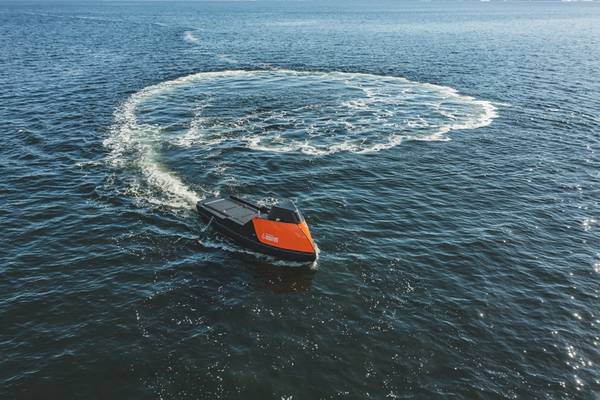
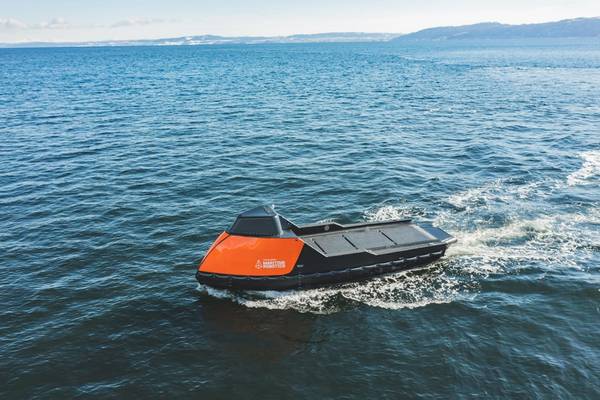
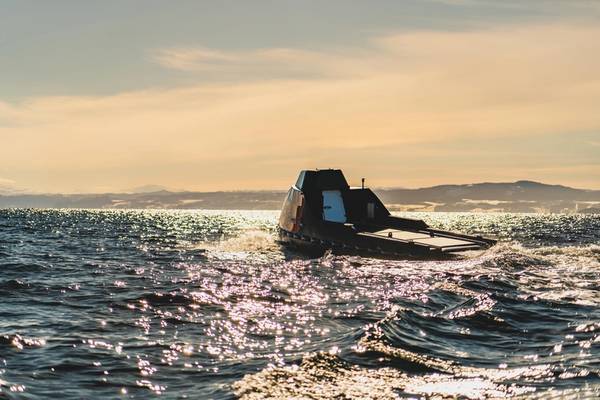
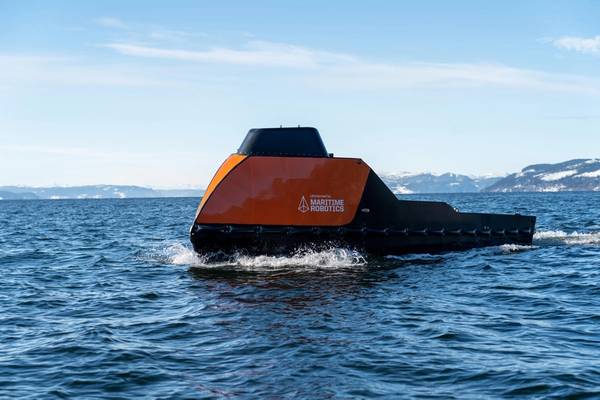
Maritime Robotics' new multi-purpose Unmanned Surface Vehicle (USV) platform, the Mariner X, is the company's most configurable and optimizable USV platform to date, built to deliver high-quality data acquisition at sea.
The first operator of the new Mariner X USV platform is Argeo. Dubbed Argus, Argeo’s first unmanned survey and inspection vehicle is intended to exploit the strong demand for accurate ocean mapping, especially within the growing offshore wind market. The Argus USV is geared to conduct advanced mapping and inspection services using robotics and autonomous ocean space technology for offshore and energy projects in water depths from 2–200 meters.
“Argeo has been a fantastic partner in the development of the Mariner X platform. The result is a new and uniquely configurable vessel designed from scratch to make offshore and coastal operations safer and more cost-effective while also reducing the carbon footprint,” said Vegard Hovstein, CEO of Maritime Robotics.
The Mariner X's substantial astern deck space fits two actuated moonpools and two dedicated sensor positions, allowing for a wide range of surface and sub-surface sensors and other payloads.
“Based on our own experiences and feedback from our customers, we wanted to make a vessel able to handle multiple survey sensors below the hull. We also wanted a configurable deck space to allow for towed sensors, cargo, or other applications”, says Hovstein.
The five sq. m. deck space also has a rail system for field-swappable payload systems. It easily facilitates mounting custom payloads such as survey navigation, satellite communications, deck generators, winches, deck cargo, and more.
Another feature of the Mariner X is the hull and superstructure design, based on a collaboration between Maritime Robotics, Ulstein Design, and local boat designer Innovation JBA. The shape of the foreship is intended to facilitate improved force distribution, and the tampered front enables a gentler displacement to allow better stability during poor weather conditions. “This translates to fewer disturbances and thus better data quality when surveying”, said Hovstein.
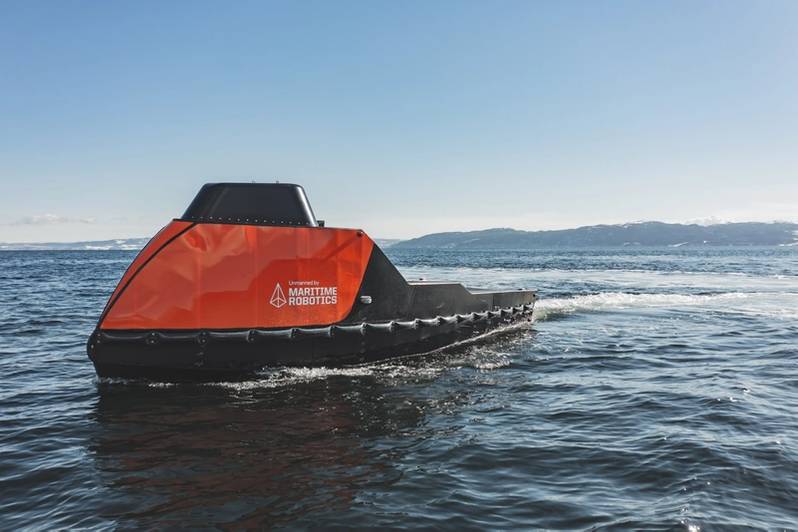 Image courtesy Maritime Robotics
Image courtesy Maritime Robotics
The SeaSight system is designed to allow operators to monitor the surroundings and receive collision avoidance warnings based on AIS, radar overlay, and visual live stream video.
“The strong polyethylene hull makes the Mariner X a stable, unsinkable, and near-maintenance-free platform capable of handling extreme weather conditions. Tuned radome protects the antennas from harsh elements such as icing in arctic environments," said Joel Pederick, Product Manager for Mariner and Mariner X at Maritime Robotics.
At 9 m long, the Mariner X is about 3 meters longer than its Mariner-class sibling, but it still fits within a container footprint for long-distance transport. It can be launched from ports and transit offshore or deployed from a vessel-based davit.
Operators of the Mariner X will be able to mount Multibeam Echo Sounders (MBES), Sub-bottom Profilers (SBP), and an acoustic modem, all on the same vessel. The Mariner X can also field sensor packages traditionally mounted on large vessels of opportunity.
“As a multi-purpose platform, the Mariner X is designed to replace or operate as a force multiplier in conjunction with a conventional crewed survey vessel. This can significantly reduce both the costs and environmental impact of operations at sea”, says Pederick.
Main Characteristics of the Mariner X USV



